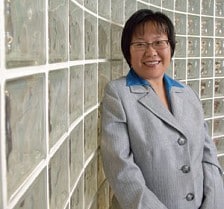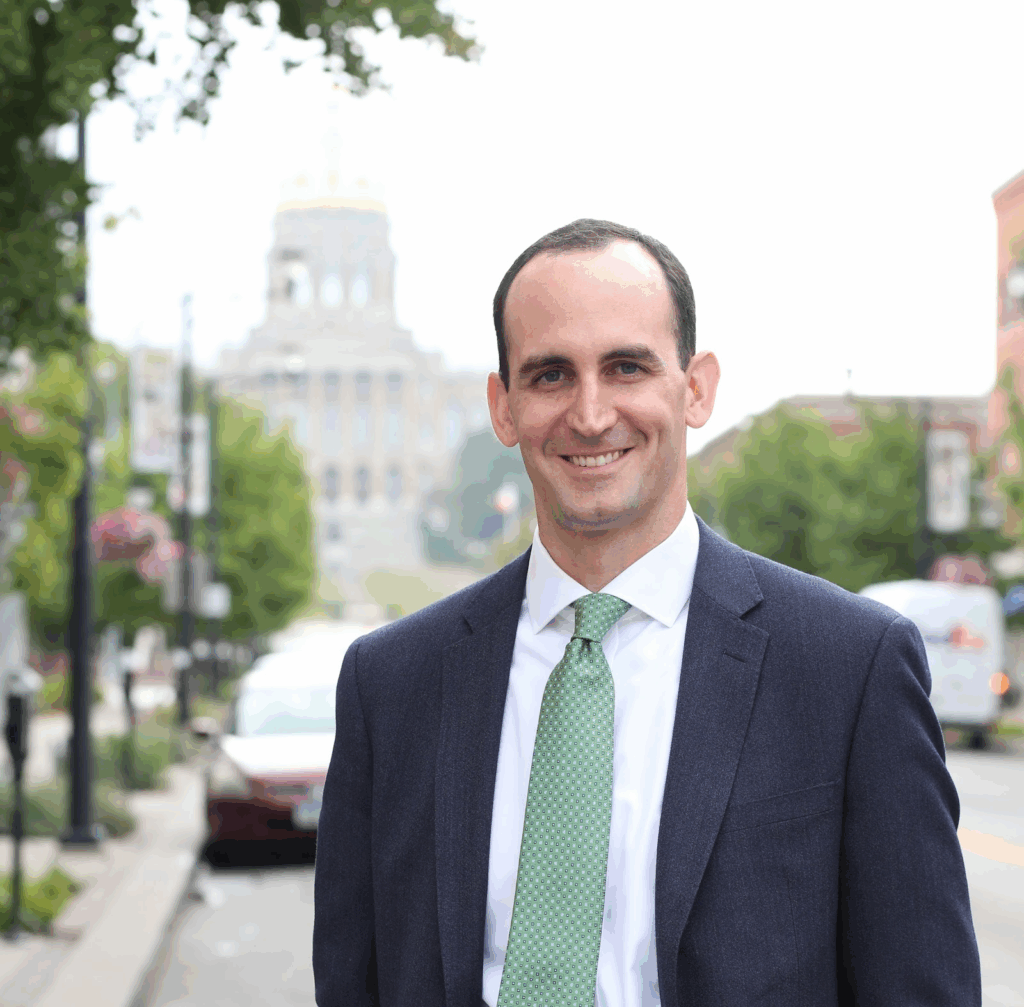Meet Ying Sa
Helping immigrant businesses grow is more than a job; it's this woman's mission

The issue: Immigrant workers
Immigration reform is a broad and controversial issue, but many business and political leaders agree on two important facts: Immigrants are more likely than non-immigrants to start their own businesses, and current visa limits are keeping some of the best and brightest foreign students from staying and working here. Immigrants represent 12.9 percent of the U.S. population, but they accounted for 28 percent of all new businesses started in the United States in 2011, according to an August report by the Partnership for a New Economy, a group advocating for immigration reform. This month, the Ewing Marion Kauffman Foundation, a Missouri think tank, said that immigrant entrepreneurship in tech fields has stalled for the first time in decades and is on the verge of a decline. The study found that the proportion of immigrant-founded tech companies slipped to 24.3 percent nationwide from 25.3 percent in 2005.
Ying Sa keeps her focus simple. The China-born woman who emigrated to Canada and then the United States has a passion to help immigrants grow their own businesses.
Sa, who left a top job at Wells Fargo Financial four years ago to form her own accounting firm, Community CPA & Associates Inc., does this through her business.
But that’s not enough for her.
Six years ago, she and leaders from Des Moines’ Asian and Latino communities began a nonprofit organization to educate immigrant business owners about common legal and tax problems.
“What I saw in immigrant business owners is they are not lacking a good work ethic,” Sa said. “They are not lacking ambition or ideas of business. What they are lacking is almost the understanding of the society, of the regulations and requirements for business.”
As an example, she recalled the man who wanted to sell used cars but did not understand zoning laws. The man signed a contract and put down a deposit to rent a location without knowing that it wasn’t zoned to allow a car lot.
Since 2008, the nonprofit group’s signature event has been its annual Immigrant Entrepreneur Summit, a daylong session of education sessions for businesses and an annual ceremony honoring top immigrant businesses.
Sa and other board members raise money — about $50,000 annually — to stage the event. In its first year, it attracted 300 people. Last year, 468 attended.
But here are the stats that really count: The people who attended the 2010 session formed 125 businesses. Those at the 2011 summit started 138 businesses.
Through the summit, Sa and her group have earned respect from government and business leaders.
“She is phenomenal,” said Mary Bontrager, the Greater Des Moines Partnership’s executive vice president for workforce development and education. “Just the work that she’s done in the entrepreneurial community.”
Sa is quick to point out that she is not alone in this effort. Swallow Yan and Max Cardenas helped get the nonprofit group going. Today a group of about a dozen volunteers, from all walks of life and ethnic backgrounds, meet once a week to plan, not only the yearly summit, but now also for a series of monthly business workshops for entrepreneurs.
And although many businesses owners complain that it’s harder to get loans from banks since the Great Recession, Sa said that is not the biggest obstacle for most immigrants. A study this year by the Small Business Association Office of Advocacy found that immigrants most often start their businesses with personal or family savings. The second most common source of seed money is credit cards, and third is reinvesting their business profits.
Sa thinks the biggest obstacle is how difficult it has become for immigrants to obtain visas to stay here.
“I am not into the immigration policy debate because I don’t have a lot of knowledge, but if someone asked me, I would say that we need to focus our whole nation on growing business like Iowa does,” Sa said. “Our immigration policy should help with business development. We should not reject the visa of a businessman from China, who has already invested a million dollars here, but we are doing that right now. The immigration policies are not clearly made to grow business for the country.”
The country could take a lesson from Iowa, she said.
“What we do really well here in Des Moines – from the government to the nonprofit (sector) – is growing business.” Sa said. “It takes a collaborative effort of the whole. It doesn’t happen if your government or agencies are going in different directions.”
Q & A
What was the biggest obstacle for you in starting your own business?
Our family has gone through a very difficult immigration process. (Although they came here on visas from Canada, their situation was complicated by her husband’s student visa and the fact that he became a naturalized Canadian citizen when he married Sa. When they applied for green cards to begin the process of becoming U.S. citizens, they were told their visas were no good.) We were in that hole for six or seven years. Every Christmas we think is our last Christmas because we have to go back if we can’t get this thing resolved.
I was, every day, thinking of this as my last day. I always say that I understand immigrants with my skin because I lived through it. You don’t get the sense of settlement. You are temporary. You borrow this life.
What’s the greatest satisfaction for you in your business?
For me, when I see people be successful and be able to help themselves establish a wealthy, stable life here in U.S., that’s huge.
Why do you think immigrants are more likely to start their own business?
People who have the courage to step into a piece of land, with no relatives and just start from beginning, they are risk takers. One of the most fundamental requirements of entrepreneurs is you have to be a risk-taker. It is maybe easier for immigrants because they have already gone through a time when they have nothing. They have nothing to lose.









